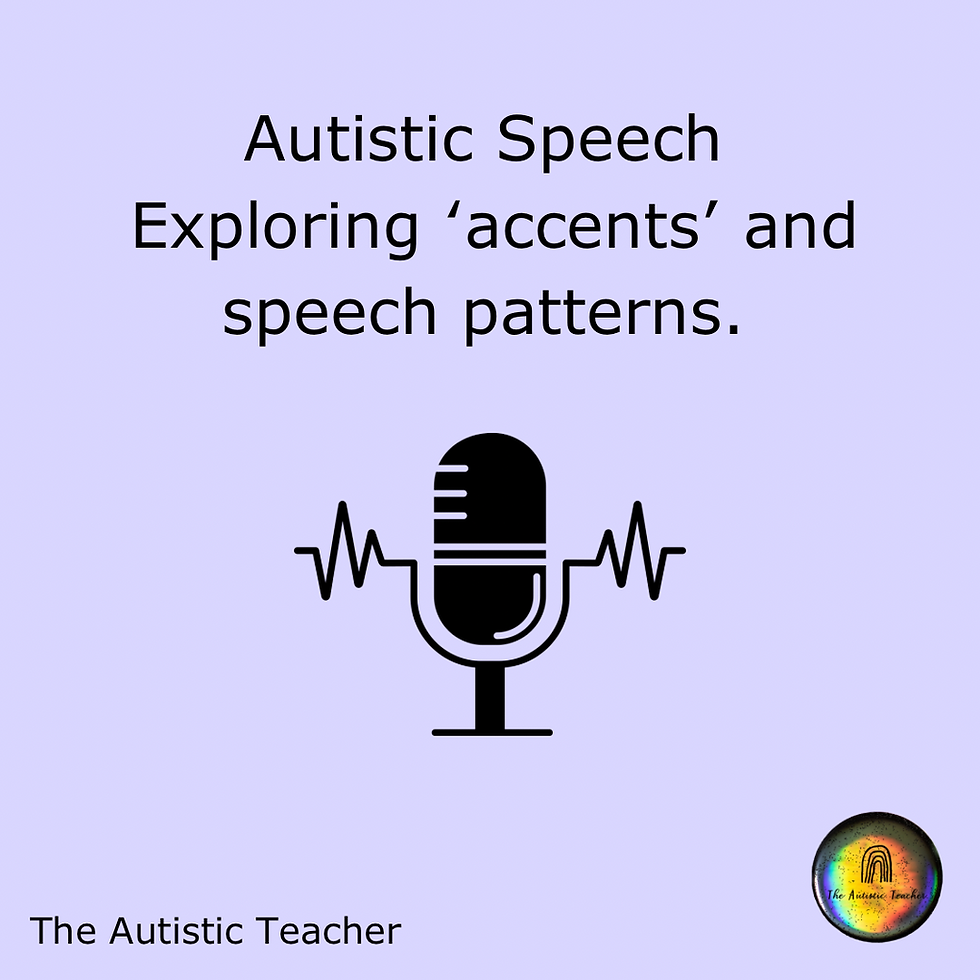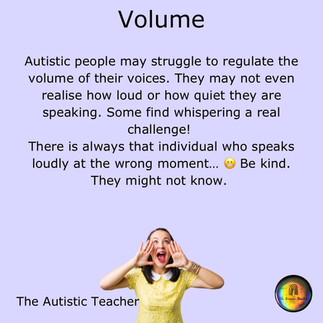
Autistic Speech: Exploring ‘accents’ and speech patterns
- mandycook2021
- Jan 14, 2024
- 2 min read
As an autistic teacher, CEO of an Autism organisation, advocate and parent to autistic children, I have a unique perspective and understanding of autistic speech. My observations and experiences form the basis of this discussion.
Autistic Accent?
It is often said that autistic people live ‘in their own world’. Yet, we absorb so much of our environment that it can feel overwhelming. This absorption can manifest in several ways, including the way we speak. For instance, my daughter, who grew up in an English household, developed an American accent. Why you may ask? It's because she found it easier to absorb the accents from her TV shows, which required no demands to respond, no need for eye contact, and no worries about responses. This is compared to our family 'interaction' that demands a response and is naturally more challenging for an autistic person.
Furthermore, autistic people often try to fit in, mask, and mimic accents of those around them. When I had a best friend from South Africa, I was often asked if I was South African! I didn’t even know that I was doing this.
Some autistic people pick up bits of accents and are therefore not 'placeable' by their accent.
Speed
Speech speed among neurodivergent people can vary greatly. Some people's brains work super fast, often in different directions at the same time, resulting in fast speech. Some neurodivergent individuals speak really fast! On the other hand, some autistic people focus on using the 'correct word' or sentence syntax and might speak more slowly. Slower speech could also be due to processing time— sometimes the words are in your brain, but it takes a while to put them in the correct order and translate them into speech.
Tone
The tone of speech among autistic individuals also varies. It is often said that autistic people are very monotone. This can be true. However, the opposite can also be true! Autistic people can also be very 'sing-song' in their speech. This could be due to masking or mimicking those around to fit in. As a teacher, I’m very aware of my tone of voice… and am very aware that I might be boring people if I speak too 'monotone'! Some of us might be aware of this and overcompensate by using lots of expression!
Volume
Autistic people may struggle to regulate the volume of their voices. They may not even realise how loud or how quiet they are speaking. Some find whispering a real challenge! Therefore, always remember to be kind to the person who speaks loudly at the wrong moment. They might not know.
Conclusion
So, a stereotypical autistic accent doesn’t exist. However, there are certain reasons why we might be speaking in a particular way. I hope that these insights have helped you to understand autistic speech better.
Support The Autistic Teacher
If you have enjoyed my work and would like to support my mission to help the Autistic Community, feel free to buy me a coffee. Please only donate if you can afford to do so. Everything given is very much appreciated. You can also help to spread the word by liking, loving, and sharing my posts.



















Comments